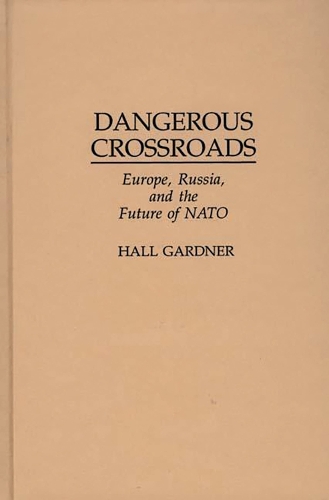
Dangerous Crossroads: Europe, Russia, and the Future of NATO
(Paperback)
Available Formats
Publishing Details
Dangerous Crossroads: Europe, Russia, and the Future of NATO
By (Author) Hall Gardner
Bloomsbury Publishing USA
Bloomsbury Publishing USA
20th March 2025
United States
Classifications
Tertiary Education
Non Fiction
International relations
Geopolitics
355.031091821
Physical Properties
Paperback
296
Width 152mm, Height 228mm, Spine 20mm
435g
Description
Gardner explores the global ramifications of the NATO-Russian relationship. He argues that NATO enlargement into Central Europe risks the overextension of NATO's political consensus and could provoke Russia and other states that do not expect to become full members of the alliance. He concludes by proposing an alternative system of security for the region.
Gardner explores the global ramifications of the NATO-Russian relationship. He examines NATO's Partnership for Peace initiative as it relates to Russia, and he argues that NATO risks provoking Russia and other states that do not expect to become full members of the alliance. He contends that if NATO and Russia cannot reach a compromise over a new system of security in Central and Eastern Europe, then Russia could adopt an increasingly assertive Eurasian stance by more closely aligning with potentially anti-Western states such as Belarus, China, India, Iraq, and Iran. Likewise, the possibility of a renewed division of Europe cannot be ruled out.
Gardner asserts that it is absolutely necessary to draw Russia into a concerted relationship with the United States and the European Union. He concludes by formulating a viable system of cooperative-collective security for all Central and Eastern European states backed by conjoint NATO, European, and Russian security guarantees. This is a thoughtful and provocative analysis of great interest to policymakers and students of international relations and contemporary defense issues.
Author Bio
HALL GARDNER is Professor and Chair of the Department of International Affairs and Politics at The American University of Paris. He is the author of Surviving the Millennium: American Global Strategy, the Collapse of the Soviet Empire, and the Question of Peace (Praeger, 1994).
